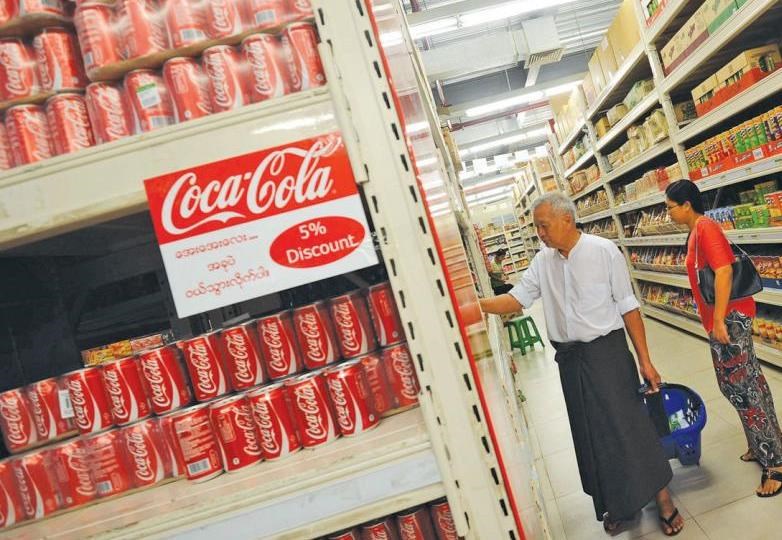

Soft drinks giant Coca-Cola Myanmar has launched a nationwide recycling awareness campaign called “Tan Bo Shi Tal” to encourage public awareness on plastic and aluminium recycling. This initiative is based on a circular economy-focused study by Gone Adventurin, which argued that two areas that can have significant impacts on reducing plastic and aluminium bottles into the environment are through reducing littering in public places and boosting plastic bottle and aluminium can segregation at homes and businesses.

“Tan Bo Shi Tal” literally means “it has value” and colloquially “it’s worth it” in Myanmar language. Coca-Cola said the company aims to raise awareness on the value of recycling and encourage people across the country to participate. The campaign highlights the importance of bottle and can segregation at all levels, from home to retail, and while on-the-go. The campaign will be supported by activities like recycling bin installations and other activations.
“The promise of ‘Tan Bo Shi Tal’ is meant to be a banner that any Myanmar organisation - public or private -can use to raise awareness on the value of plastic bottles and aluminium cans, and why it’s worth it to take the extra time to recycle,” the firm stated in a press statement.
The company reiterated their belief that recyclable materials should be used and reused to have more than one life and to add value beyond their initial use. The company further said that all Coca-Cola’s beverage packaging in the country is “100pc recyclable”.
“‘Tan Bo Shi Tal’ activities will expand over time, beginning with the core focus on raising awareness that taking time to recycle is worth it, because simple actions such as segregating your waste and not littering means doing something good for ourselves, others and Myanmar,” Rehan Khan, general manager of Coca-Cola Myanmar said.
The Coca-Cola-commissioned Gone Adventurin report details the current packaging collection and recycling infrastructure and material flows of PET and aluminium in Yangon and Mandalay. The study reveals that PET bottle and aluminium collection rates are some of the highest in Southeast Asia. For example, Yangon collects 74pc of its post-consumer plastic PET bottles and 86pc of its aluminium cans, and Mandalay 83pc of bottles and 91pc of cans.
These rates will still come under pressure unless there are more incentives and value around the informal collection of recyclable material. The report also indicates that only 13pc of households reportedly segregate their waste.
Coca-Cola in Myanmar is also collaborating with the “Doh Eain” to deliver a garden alleyway revitalisation project and with the domestic social enterprise Hla Day to produce artisan crafts made from recycled aluminium cans and plastic bottles. These are in line with the firm’s recently launched packaging initiative “World Without Waste.”
The company’s global goal to help collect and recycle the equivalent of every bottle or can it sells by 2030 – focuses on the entire packaging lifecycle, from how bottles and cans are designed and made, to how they’re collected, recycled and repurposed.
“To help improve recycling rates, Coca-Cola will apply its global marketing expertise to help educate the public on what, how and where to recycle,” Coca-Cola explained in a statement.
Responses








